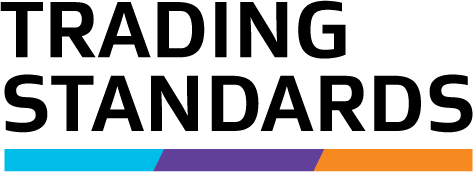Marine fuel quality
Maritime New Zealand and Trading Standards have regulatory responsibilities for marine fuel quality. Understand their roles and the relevant legislation.
International agreement
On 26 May 2022, New Zealand agreed to Annex VI of the International Maritime Organization (IMO) Convention for the Prevention of Pollution from Ships regulations for the prevention of air pollution from ships (MARPOL Annex VI).
The MARPOL Annex VI convention is aimed at addressing climate change impacts from shipping and reducing the total global air emissions from marine transport.
This reduction will reduce the adverse public health effects of marine air pollution on communities close to ports and harbours, from both domestic and visiting foreign ships. It will also reduce the impact of air pollution from ships on the environment.
In New Zealand, the sea is an important source of kaimoana (seafood) and a taonga (treasure) that should be protected and preserved for future generations.
For more information on MARPOL Annex VI and the international treaty that it forms part of, see the Ministry of Transport website:
Legislation
MARPOL Annex VI marine fuel quality requirements came into effect in New Zealand on 26 August 2022. They impose obligations on ship operators in relation to emissions of sulphur dioxide, particulate matter, and nitrogen oxides amongst others. They also impose obligations on suppliers of fuel around the specifications of the fuel they supply and requirements for bunker delivery notes and representative fuel samples.
Annex VI is implemented in New Zealand through the following legislation:
- Maritime Transport (MARPOL Annex VI) Amendment Act 2021
- Marine Protection Rules Part 199: Prevention of Air Pollution from Ships – Maritime NZ(external link)
- Marine Protection Rules Part 100: Port Reception Facilities
- Engine Fuel Specifications Regulations 2011 (SR 2011/352),(external link) as amended by the Engine Fuel Specifications Amendment Regulations 2022 (SL 2022/209)(external link)
- Marine Protection (Offences) Regulations 1998 under the Maritime Transport Act 1994
- Maritime (Charges) Regulations 2014 under the Maritime Transport Act 1994.
Regulatory roles
Maritime New Zealand (Maritime NZ) is the national regulatory, compliance and response agency for the safety, security, and environmental protection of coastal and inland waterways. It is a Crown entity established under the Maritime Transport Act 1994. Maritime NZ’s role is to ensure that all maritime activities are carried out safely with minimal impact on the environment and on New Zealand’s security.
Trading Standards is responsible for monitoring the quality of fuel in New Zealand and ensuring it complies with relevant regulations. Trading Standards is part of the Ministry of Business, Innovation and Employment (MBIE).
Both Maritime NZ and MBIE have responsibilities for implementing the marine fuel quality and sulphur oxides regulations of MARPOL Annex VI in New Zealand.
In general, Maritime NZ is responsible for ‘ship’ side regulatory and operational activity and Trading Standards is responsible for ‘shore’ or ‘supply’ side regulatory and operational activity.
Trading Standards' specific regulatory responsibilities include the following:
- Regulating fuel oil quality specifications.
- Publishing an annual report on marine fuel testing and compliance.
- Publishing a searchable register of national fuel suppliers, ports, and fuel types available in accordance with MARPOL Annex VI requirements.
- Testing quality of marine fuels within supply chain and at point of supply.
- Ensuring suppliers comply with bunker delivery note and representative fuel sample requirements.
- Taking regulatory action against fuel oil suppliers found to be non-compliant.
- Informing Maritime NZ of any case of non-compliant fuel oil delivery to ship.
- Taking remedial action to bring fuel oil supplied in New Zealand into compliance.
For information on the role of Maritime NZ, refer to their website:
Our approach
Trading Standards' preferred approach is to provide advice and information to achieve voluntary compliance in the first instance.
Trading Standards is authorised to take fuel samples from any part of the supply chain, including the point of delivery, for independent analysis. This is to establish confidence in the quality and level of compliance of marine fuel supplied in New Zealand.
We will make enquiries into any issues or non-compliance that is identified. The primary focus of any enquiries is to resolve identified issues and confirm mitigations are in place to ensure ongoing compliance of the marine fuel supply.
Serious or repeated non-compliance may result in more formal investigation and regulatory compliance activity.
Complaints and enquiries
Trading Standards responds to complaints and enquiries from fuel consumers and industry stakeholders. Contact the Fuel Quality team:
If you think there's a problem with your fuel, contact the service station or fuel supplier that sold it to you. You can also lay a complaint with Trading Standards, who will follow it up with the fuel supplier concerned.
